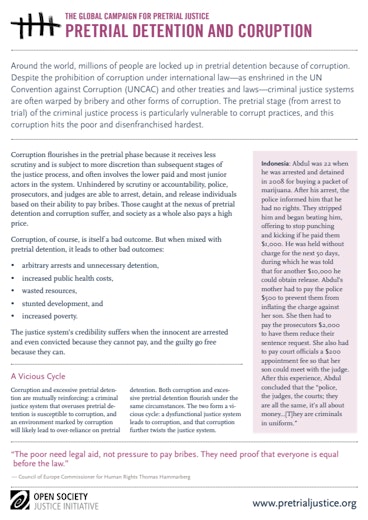Fact Sheet: Pretrial Detention and Corruption
Despite the prohibition of corruption under international law—as enshrined in the UN Convention against Corruption (UNCAC) and other treaties and laws—criminal justice systems are often warped by bribery and other forms of corruption.
Corruption flourishes in the pretrial phase because this stage of the criminal justice process receives less scrutiny and is subject to more discretion than later stages. Unhindered by scrutiny or accountability, police, prosecutors, and judges are able to arrest, detain, and release individuals based on their ability to pay bribes. Those caught at the nexus of pretrial detention and corruption suffer, and society as a whole also pays a high price.
Consequences include: arbitrary arrests and unnecessary detention; increased public health costs; wasted resources; stunted development; and increased poverty. The justice system's credibility suffers when the innocent are arrested—even convicted—because they cannot pay, and the guilty go free because they can.
Topics
- Climate Justice
- Digital Rights and Fair Elections
- Discrimination and Racial Justice
- International Crimes


